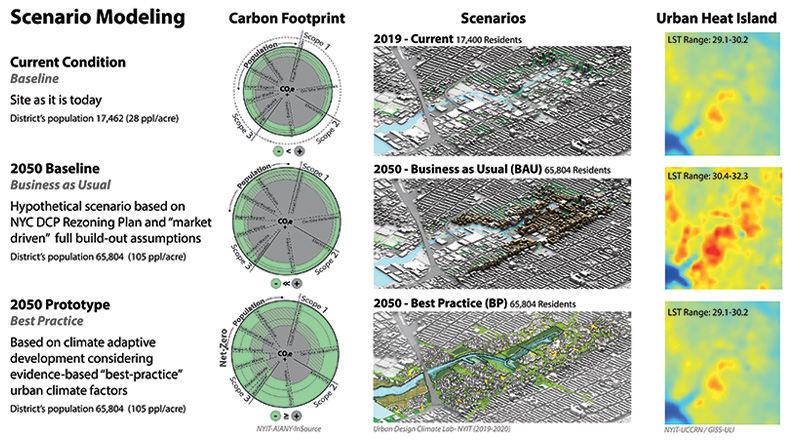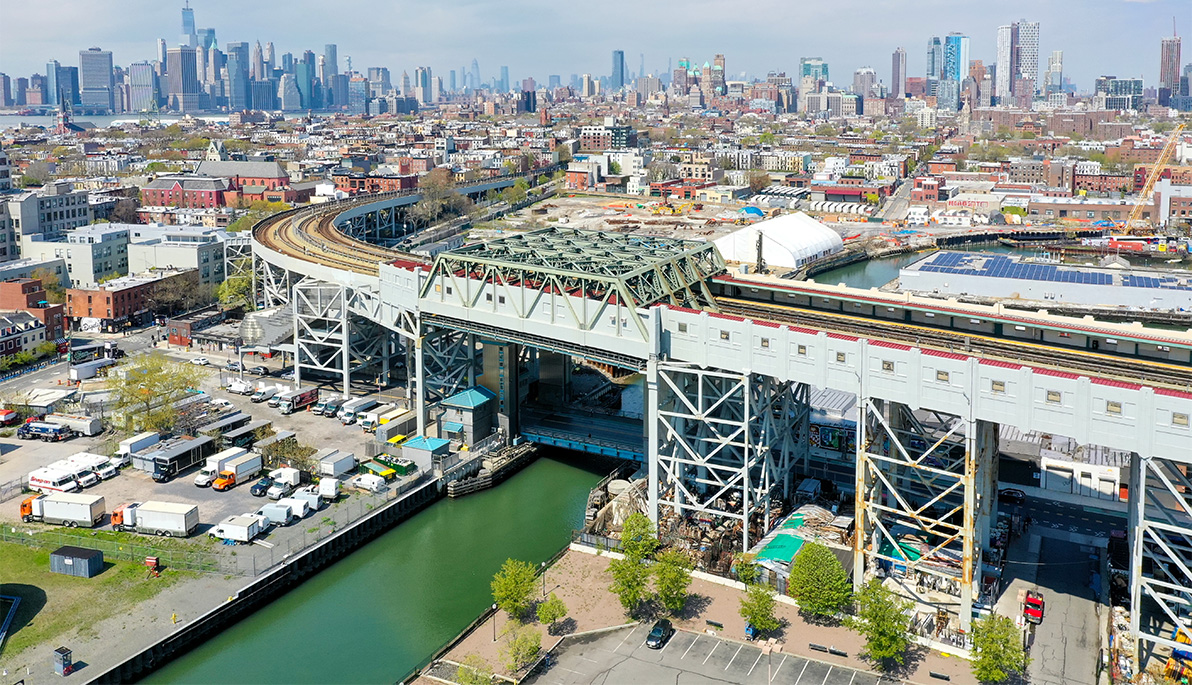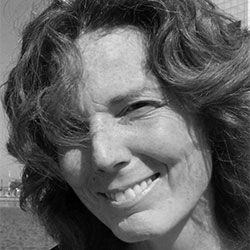News
Students Propose Ways to Achieve Zero-Carbon Footprint in Gowanus
December 16, 2020
The Gowanus neighborhood of Brooklyn is rapidly being transformed from an industrial area fraught with 19th- and 20th-century pollution issues into a 21st-century residential and commercial community. While the revitalization of the neighborhood brings excitement, it also leads to important questions, namely: How will the scheduled rezoning of Gowanus likely impact resident quality of life, as well as urban heat stress adaptation, flood resilience, and greenhouse gas emission mitigation?
To help answer this question, and to propose ideas for mitigation for similar projects in the future, in spring 2019, the Urban Land Institute’s (ULI) New York District Council and the ULI Urban Resilience Program invited students in the M.S. in Architecture, Urban, and Regional Design program to join an Urban Design Climate Workshop (UDCW). The workshop members also included the Urban Climate Change Research Network (UCCRN), a global consortium of climate experts. This capacity-building exercise engaged the local community, real estate and land-use professionals, and government officials as they discussed ways to include climate projections in redevelopment initiatives.
Led by NYIT School of Architecture and Design Associate Professor Jeffrey Raven, FAIA, LEED BD+C, the graduate students who took part in the workshop sought to develop a case study to test different modeling approaches to achieve a zero-carbon footprint by 2050 that positively impacts the people within the community. “Working with these teams, we are prototyping a response to conditions in New York and elsewhere,” Raven explained. “How can you design a district anticipated to become more crowded, hotter, and wetter and still have a wonderful quality of life? It was important to bring scientific urban planners and students to the table to study this.”
For the New York Tech graduate student participants, the UDCW presented the opportunity to conduct research, develop strategies, and work with a variety of professionals in real time. Student Jinali Shah served as a graduate assistant in spring 2020 to Raven and graduating members of the research team to support their design and strategies. She also arranged meetings between industry experts, stakeholders, American Institute of Architects members, and the New York Tech team. “I played the role of a catalyst to strive for the balance between all the participants,” Shah said.
The students’ work appeared in several publications, including:
- The Urban Land Institute (ULI) in partnership with ULI and the Urban Climate Change Research Network (UCCRN) and NASA Goddard Institute for Space Studies
- America’s Zero Carbon Action Plan, by Jeffrey Sachs, Ph.D., director of the Center for Sustainable Development at Columbia University
- The French journal La Revue Urbanisme

Carbon footprint and urban heat island scenarios for Gowanus community in Brooklyn, N.Y., under different development scenarios.
With this experience under her belt, Shah was then able to spearhead the Net Zero Neighborhoods for NYC – Gowanus Case Study for the fall semester, working primarily on the systems and user aspects of the project. “I managed to lead the 3-D modeling software with the professor and coordinated with the class to derive the best practice 2050 scenario for the Gowanus case study,” she said.
“I believe as an urban designer, this was an eye-opening project and gave me a reality check of the present conditions,” Shah said about her experience with the workshop. “For me, the major takeaway from this project is to develop cities around the world to be self-sustaining, energy-efficient, minimize waste and carbon emissions, and work towards making it sustainable for the community. On a personal level, it has helped me to understand how the system works and how, on a personal level and as an urban designer, I can contribute to it.”
Shah feels confident that this exercise will benefit her professionally. “I have learned the concepts and the application of key features of sustainability, and this will help me in my future endeavors to contribute to society. I look forward to working on similar projects in the future and collaborating with the masses to make it more applicable for the community,” she said.
Yuval Eynath (M.S. ’19) brought his urban design studio and graduate assistant experience with the UDCW to his current role as a district planner with the Israeli Central District Planning Committee, a governmental organization involved with large-scale planning and master planning. “With my current position, terms such as mitigation, adaptation, and quality of life are crucial in understanding urban dilemmas. On the short and long terms, infrastructure such as waste-to-energy or sewage water treatment might be taken as an urban burden with its noise, pollution, smell, and land occupancy,” Eynath explained. “Understanding the long terms and resilient values of such facilities within urban environments calls for truly achieving the ‘value proposition’: using what might be seen as a spatial conflict to allow added values like creating job opportunities, educational opportunities, making the once distant infrastructure and ideas of climate change approachable and accessible, making ‘facilities’ part of the urban landscape to work with the built, natural, and human environments.”
The graduate students who worked on the Gowanus project realized the “vast perspectives and considerations with current-day urban design, how data, software and computerized analysis are to be translated and integrated to urban environments, street life, and individual activities,” he said, adding that the climate language “is global and touches all of us.”
And that, Raven said, is exactly the intention of this workshop: to take what students learned and apply it to future projects across the globe. While the results from the UDCW will not be used specifically for the Gowanus rezoning project, they can and will impact similar projects around the world.
The ongoing global challenge of successfully addressing mass urbanization, climate change, and equity can perhaps one day be surmounted with help from the grad students who participated in the UDCW. “It’s a seemingly paradoxical situation,” Raven said. “But we’re attempting to develop evidence-based approaches to provide an outcome that can show you can have it all.”





